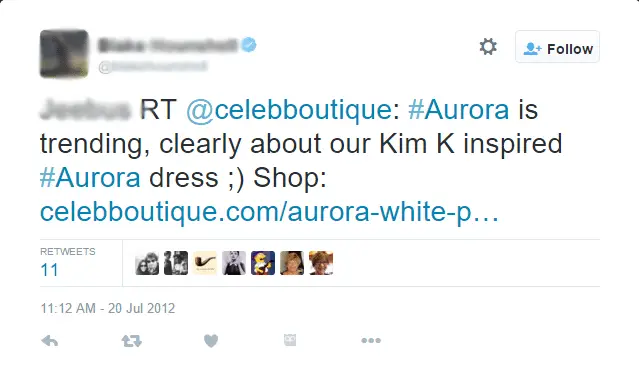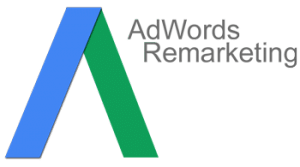The internet is probably the best thing that ever happened to individual authors trying to get their name out there. It has effectively leveled the playing field with traditional publishing houses and paved the way for regular people to share their work with the world.
This section is all about the online marketing methods available to authors. We’ll show you some of the best practices for search engine optimization (SEO), social media marketing, paid advertising, content marketing and more.
The Author Website
Your author website is the centerpiece of your online marketing activities. It’s pretty much where you want to send all traffic from different properties around the web that you have a presence on. Your website is the one place where you can completely control the conversation about your book and influence users on how to purchase it.
Everything you do related to online marketing for your book should be designed to drive traffic back to your website.
SEO
 SEO is an acronym for search engine optimization and it is all about configuring your site (and some things that happen off of your site) to perform well in search. There are many facets to good SEO and one thing writers should keep in mind is that it can take a long to make a new site start showing up for any given keyword phrases in the first few pages of search results.
SEO is an acronym for search engine optimization and it is all about configuring your site (and some things that happen off of your site) to perform well in search. There are many facets to good SEO and one thing writers should keep in mind is that it can take a long to make a new site start showing up for any given keyword phrases in the first few pages of search results.
A detailed explanation of the exact steps necessary to optimize a website would fill many volumes. Here we will give you some best practices in the key areas of SEO to get you started. Moz also has an excellent beginner guide on how to optimize your website.
On-Page or On-Site Elements
Pretty much all SEO can be divided into two basic categories of tasks. That is on-site and off-site. On-site refers to those tactics that are performed directly on the site being optimized. They also happen to be items that are completely within your control. Off-site tactics are those things that are done on other websites that help your site perform well in search.
Page Titles: Your page titles should contain the target keyword for your page (one word per page) and should be about 55-65 characters in length (spaces included)
Meta descriptions: You page meta descriptions should also contain the target keyword for your page and should be very compelling (this may be what causes people to click). They should be no longer than 150-160 characters.
Headings: Each page of your site should have one page heading. In HTML these are made using the <h1> tag. Your heads should be very descriptive of the content beneath them. Try to include your target keyword phrase for the page in your heading but only if the content underneath it is about or related to the keyword.
Content architecture: If you set up your site using WordPress using the tutorial in this post, your physical layout should be fine already but you have to make sure your content is organized appropriately. For example group logical sections together and make each page about a single topic. This helps search engines and people better digest your website.
 Indexing and robots file: A robots file is a file that instructs search engines whether or not it is ok to crawl and index your website. By default WordPress has a robots file installed but you also need to make sure it is configured properly. Ideally you just want the file set up so that Google and other search engines can crawl your site without a problem. Here is a good tutorial on robots files.
Indexing and robots file: A robots file is a file that instructs search engines whether or not it is ok to crawl and index your website. By default WordPress has a robots file installed but you also need to make sure it is configured properly. Ideally you just want the file set up so that Google and other search engines can crawl your site without a problem. Here is a good tutorial on robots files.
SEF URLs: SEF stands for search-engine-friendly URLs. Search engines can have issues if you make urls that have special characters in them or spaces so don’t do that. Also make your URLs descriptive of your pages so your visitors know what the page is about.
Mobile-ready: Google announced in 2014 that mobile responsiveness or mobile-ready websites would take precedence in their search results. Make sure your site is optimized for mobile by either having a mobile version or being responsive. Many recent WordPress themes are already mobile responsive out of the box (meaning that the site changes based on what device is viewing it).
Page Speed: Your pages should all load as fast as possible. You can use Google’s Page Speed insights to see if you have any page load speed issues and to get suggestions on how to fix them.
Canonical URLs: Google sees all URLs as being different even if they lead to the same place (for example www.example.com and example.com). Canonicalizing your URLs tells Google which one is the preferred URL. WordPress has some good canonicalization plugins.
Schema Markup: Schema is HTML code that is placed on text and other content to make it machine understandable. Adding schema markup to your site won’t help it rank better but it can help search engines display the content of your site in better ways. For example adding schema to phone number, address and other location information can help search engines display that data to users.
Sitemap: A sitemap is simple a listing of all the pages on your site. It helps to submit a sitemap to search engines (especially for new sites) so that you are sure all of your pages get indexed.
Blogging: Adding content on a regular basis to your site is important. Google is always looking for fresh content to show to users and blogging can also help you target additional keywords. There are also a variety of linking opportunities when you generate this kind of content.
Off-site Elements
Here are some off-site elements that can help your site perform better in search.
 Link building: Links are a cornerstone of a good SEO strategy. The quality and quantity of links pointing at your author website can have a lot of influence over where it ranks in search.
Link building: Links are a cornerstone of a good SEO strategy. The quality and quantity of links pointing at your author website can have a lot of influence over where it ranks in search.
Social Signals: Having a solid presence on social media channels can help spread your content and your author brand. This can help get more links built to your site and also give signals to search engines that you are an authority in your niche.
Even though we only list these two examples, there are a variety of strategies for using social and link building to your advantage. Moz has an excellent post on different off-site link building strategies.
Social Media Marketing
Social media is an excellent way to market your book and yourself as an author. Unlike other forms of marketing and advertising, social is mostly free, provides for a two-way conversation and it really allows others to make their own personal style show through.
There isn’t any one network that authors should be on but they should instead ‘listen’ on different networks to see if their audience is present. After that is established, follow these best practices for reaching your audience and starting or joining the conversation:
Don’t talk about yourself: The worst thing you can do is start up a social profile, get some followers and then just start talking about your book or yourself as an author. That will come in time but you want to spend the majority of your time sharing content that your audience likes to see. That may mean no talking about yourself or your book at all most of the time.
Brand your account well: If you are well branded, just sharing content that has nothing to do with you or your title will still work. Then people will constantly be sharing, liking, commenting and interacting with content from your brand. Make sure you have a branded profile or cover photo. Put a link to your website in social profiles you are active on. Make sure your ‘brand’ is consistent across all profiles.
Go Where your audience is: Like we mentioned before, listen on networks to see if your audience is there. Do not just start marketing on Facebook because a lot of other brands and authors are. Yes it is likely your audience may be there because the demographic using Facebook is so broad but that doesn’t mean you won’t get more out of your time somewhere else.
Be timely: If you are marketing on social media, you have to be timely. Trends come and go quickly and you have to strike while the iron is hot. For example if you want to join a conversation that is related to authors, writing or publishing in some way, you have to stay on top of that sort of thing.
Do your homework on trends: It is unfortunate when a brand or author jumps on a trending band wagon before they fully understand what it’s all about. If you see a topic trending on Twitter for example, do your homework and find out what the topic is really about. Something that may seem innocent at first may have deeper meaning and turn out to be something you don’t want to have your name associated with. For example celebboutique.com tried to jump on the #Aurora hashtag but didn’t notice it was trending because of the horrific mass shooting happening in the small Colorado town. All it takes is a few minutes of digging to see if a hashtag is something you want your author brand associated with.

Stay Consistent: You should be posting to your social accounts on a regular basis. There is tons of information on the web about how frequently you should post and when however take it all with a grain of salt. The truth is there is no magical frequency. You just need to be consistent and definitely post at least a few times per week. You will find that your frequency will even itself out after you have been active for a little while on a network. You will begin to notice the subtle ways that people interact with different kinds of post content as well as when you post your content.
Paid Search, Paid Social
 If you are just starting out and don’t have much of a budget, this is probably an area to hold off on. When you’re ready though, paid search and paid social platforms can get you instant exposure to large swathes of your audience.
If you are just starting out and don’t have much of a budget, this is probably an area to hold off on. When you’re ready though, paid search and paid social platforms can get you instant exposure to large swathes of your audience.
Here are some networks authors can consider advertising on when they get ready to do so:
Google AdWords: Google is the market leader in paid search advertising. You can also do display ads, remarketing ads, video ads, call only ads and a variety of other configurations. Be aware that Google is a premium service so you will be spending money there if you give it a try. Depending on your niche, your keywords could be pretty expensive per click so make sure you do your research before you jump in. Luna Metrics has a great starter guide on using Google AdWords.
Facebook: The leading social networking site has proven that is a force to be reckoned with when it comes to paid online advertising. They have very robust targeting features and it’s a place where you can get really creative with your ads. You can also choose to promote your own Facebook page to grow your following or get people to visit your website.
Bing: Many people have discounted Bing because Google maintains a large search market share. Don’t forget that Bing holds 20% of that so it shouldn’t be ignored. In fact, you may get more bang for your buck by using Bing ads over Google. You can even import your Google ads into Bing if you want to give it a try.
Twitter: Authors seem to have a lot of success in organic marketing on Twitter so it seems that paid advertising would be just as fruitful if not more so. Like Facebook you can also do campaigns to grow your following or send people to your website. For both Facebook and Twitter, authors may be able to get more exposure for their money because these platforms are less crowded than Google’s search platform.
Content Marketing
 Content marketing is simply using content to establish your author brand as an authority. The most prevalent form of content marketing is probably blogging however there is also video, white papers, ebooks, and podcasts just to name a few. Really any kind of content that can be used to draw attention to your book and establish you as an authority in your niche can fall into the content marketing category.
Content marketing is simply using content to establish your author brand as an authority. The most prevalent form of content marketing is probably blogging however there is also video, white papers, ebooks, and podcasts just to name a few. Really any kind of content that can be used to draw attention to your book and establish you as an authority in your niche can fall into the content marketing category.
Here is a brief overview of the different types of content marketing you can (and should) implement to sell more books.
Blogging: Posting content relevant to your readers on a weekly basis that is well-written, well-researched and full of external resources is a great way to grow your following and get more traffic. According to Hubspot, companies (and authors) who blog receive 97% more links than those who don’t.
Video: Video is a powerful medium for driving traffic, sales and leads of your books. Authors can make book trailers or other compelling short videos about their content which creates one more place on the internet that people can find them. Uploading videos to Youtube, Vimeo, Daily Motion and other platforms also creates multiple areas where authors can be found for relevant searches. Joanna Penn of the Creative Penn says videos can help you stand out from the crowd of thousands of other authors online selling books.
Podcasts: Audio podcasts on a regular basis (whether you are creating them yourself or appearing as a guest on someone else’s podcast) are another great way to help authors stand out. Authors can easily broadcast from the comfort of their home with only a quality internet connection and a decent microphone. They can talk about virtually anything they want but it’s important to develop a following for your pod cast that can deliver you sales over the long term.
eBook: You already have a book or you wouldn’t be reading this post trying to figure out how to market it. You can leverage the content you already have to sell more of it. Create an ebook (basically a PDF) and promote it online for free in exchange for a name and email. This allows authors to build an email list that they can market to on a regular basis.
Here are some examples of marketing your ebook:
- Chapter giveaway: Simply select some choice chapters of your book that you can use for downloading or in your email marketing series. The idea is to get people hooked so they want to buy the rest of the book.
- Whole Book giveaway: As we mentioned earlier, you can offer up an entire book as a free download. This usually works best if you have a series of three books and you want people to buy the other two books in the series after reading the first one for free.
- Ebook submission: You can submit your ebook to free and paid ebook submission sites to try and get it more exposure in search and to people who frequent those sites.
AMA: This stands for ask me anything and is another method for promoting yourself as an author (similar to a podcast). Ask-me-anythings allow your followers to get to know you, ask questions about your books, etc. If you are unknown at this point it may not be the best strategy however if you already have a decent following, an AMA can be very beneficial for taking things to the next level.
In Conclusion
Online marketing is a core catalyst for how authors can gain exposure and sell more books. The term itself though is misleading because it encompasses many, many different tactics that all work together. Authors should be using a combination of content marketing, paid digital advertising, search marketing and social to get as much exposure as possible and build up a loyal following of readers.

